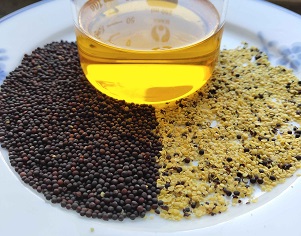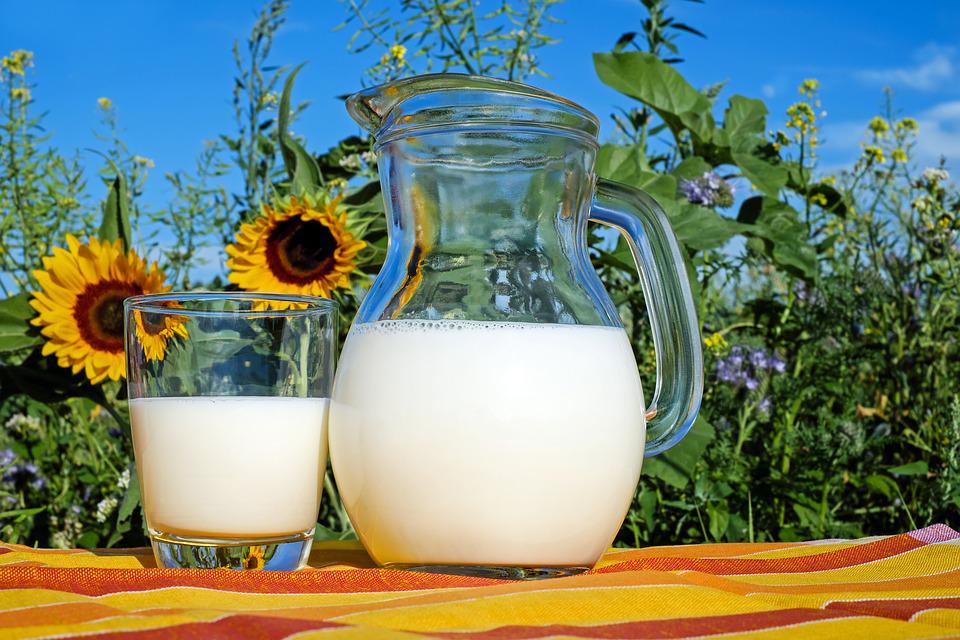创新背景
粮食问题是全球性的危机问题,目前研究预测表示,到2050年,通过可持续粮食生产提供足够的蛋白质是一项严峻的挑战,届时全球人口预计将达到97亿。目前从动物性食品中获得的蛋白质会产生大量的温室气体,不利于环境保护,因此蛋白质的摄入不得不转向植物性食物。
创新过程
油菜籽是最丰富盛产的农作物之一,大部分油菜籽蛋白用于为动物饲料提高蛋白质。哥本哈根大学在2021年领导的项目SEEDFOOD希望实现将油菜籽蛋白创新利用,从动物饲料转化为食物,开发植物性食物蛋白。

油菜花籽在世界范围内大量生长,因为其中蛋白存在抗营养成分且味道不良,且缺少在食品中形成所需结构的能力,所以只能作为动物饲料而无法成为食品。许多植物蛋白具有人类所需的必需氨基酸的低含量,与其他植物来源相比,油菜籽中所具有的必需氨基酸含量相当高,加以研究处理,可以作为人类健康和美味的营养来源。
研究人员与受试者一起工作,为产品生产过程提供需要的化学和物理知识,将知识构建成体系基础,帮助食品研发生产过程能够最大限度地利用开发油菜籽。研究人员从压碎油菜籽开始加入生产过程,检查并提出加工油菜籽的建议使其在食物中起作用,探索研究蛋白质在饮食过程中是如何被感知的,并确保它们具有正确的营养价值。

在食品行业中,对蛋白质的依赖体现在许多方面。比如蛋白质具有良好的胶凝和乳化能力,可以为食物提供良好的口感。研究致力于从味道和口感方面考虑油菜籽蛋白质的开发方法,最直接的是将其用于制造富含蛋白质的饮料,成为饮用酸奶和蛋白质饮料的良好替代品。

目前油菜籽主要是用于提取菜籽油,在提取过程中为了让油尽可能以最佳方式和最高产量被榨取,涉及一些高温过程会破坏油菜籽中的蛋白质。研究将继续探索更温和的方法保证在提取植物油的同时不伤害油菜籽蛋白,例如使用酶来改善它们在食物中的行为方式。
创新关键点
通过化学和物理知识改善油菜籽蛋白的条件,使其有望成为食用蛋白质食物。
创新价值
帮助开发植物性蛋白质食品,为缓解粮食问题助力,在保证蛋白质需求的同时降低温室气体排放。
Extract rapeseed protein to aid plant-based food development
Rapeseed is one of the most abundant crops, and most of the rapeseed protein is used to boost protein for animal feed. The project SEEDFOOD, led by the University of Copenhagen in 2021, hopes to enable innovative use of rapeseed protein, from animal feed to food, to develop plant-based food proteins.
Rapeseed is grown in large quantities around the world, because the protein in it has anti-nutrient components and poor taste, and lacks the ability to form the desired structure in food, so it can only be used as animal feed and cannot become food. Many plant proteins have a low content of essential amino acids needed by humans, and compared to other plant sources, the essential amino acids contained in rapeseed are quite high, and they can be studied and processed as a source of nutrition for human health and deliciousness.
Researchers work with subjects to provide the chemical and physical knowledge needed for the product production process, building the knowledge into a system foundation that helps the food development and production process to maximize the use of the development of rapeseed. The researchers joined the production process by starting with crushing rapeseed, examining and making recommendations for processing rapeseed to make it work in food, exploring how proteins are perceived during the diet and ensuring they have the right nutritional value.
In the food industry, dependence on protein is reflected in many ways. For example, protein has good gelling and emulsification ability, which can provide a good taste for food. The research is dedicated to the development of rapeseed protein in terms of taste and texture, the most direct of which is to use it in the manufacture of protein-rich beverages, becoming a good alternative to drinking yogurt and protein drinks.
At present, rapeseed is mainly used to extract rapeseed oil, in order to extract the oil in the best possible way and the highest yield possible in the extraction process, involving some high temperature processes that will destroy the protein in rapeseed. Research will continue to explore gentler ways to ensure that vegetable oils are extracted without harming canola proteins, such as using enzymes to improve the way they behave in food.
智能推荐
农学创新思维 | 新型干旱监测仪有助于限制干旱影响
2022-08-22通过开发新型干旱监测仪监测干旱对人们生活的影响,有助于抵御干旱你,制定更有效的解决方案。
涉及学科涉及领域研究方向农学创新思维 | 综合多项技术精准种植,促进粮食持续生产
2022-08-17结合传感器、无人机、人工智能、机器学习等多项技术的精准种植可以在提高粮食产量的同时降低对环境的负面影响,促进粮食持续生产,缓解粮食短缺和环境问题。
涉及学科涉及领域研究方向利用可生物降解的地膜替代塑料薄膜
2022-08-17研究开发可降解的农用覆盖地膜,保证农业高质量发展的同时降低对环境的影响,可持续发展农业。
涉及学科涉及领域研究方向农学创新思维 | 植物数字表型有助于可持续粮食生产
2022-08-19通过数字表型持续监测作物有助于可持续粮食生产,并在必要时补充有针对性的作物保护剂,未来甚至可以识别作物疾病识别,深入了解把控植物特性和健康状况,将使经济实惠和生态友好型的作物保护成为可能,并对未来作物育种具有重要意义。
涉及学科涉及领域研究方向